Abstract
Medical care has several important functions other than restoring or maintaining health. These other functions are assessment and certification of health status, prognostication, segregation of the ill to limit communication of illness, and helping to cope with the problems of illness--the caring function. Medical care serving these "paracurative" functions may legitimately be given indepedently, without associated curing or preventive intent of the provider of care. Although such services do not result in benefits to health, such as extension of life or reduction of disability, they do have other valued outcomes, outcomes not measurable as a gain in personal health status. For example, caring activities may result in satisfaction, comfort, or desirable affective states, even while the patient's health status deteriorates during an incurable illness. The physician's approach to patients, the economist's analysis of the benefits of health services, the planner's decisions about health programs, the evaluator's judgments about the quality of care, or the patient's expectations about treatment are strongly influenced by his assumptions about the purpose of medical care or the proper outcome of the process. When the health worker assumes that the only useful outcome is health, he may consider the paracurative services to be ineffective, inefficient, or undesirable. In contrast, when he recognizes and understands the paracurative functions of medical care, he may better perform his function in the medical care system.
Full text
PDF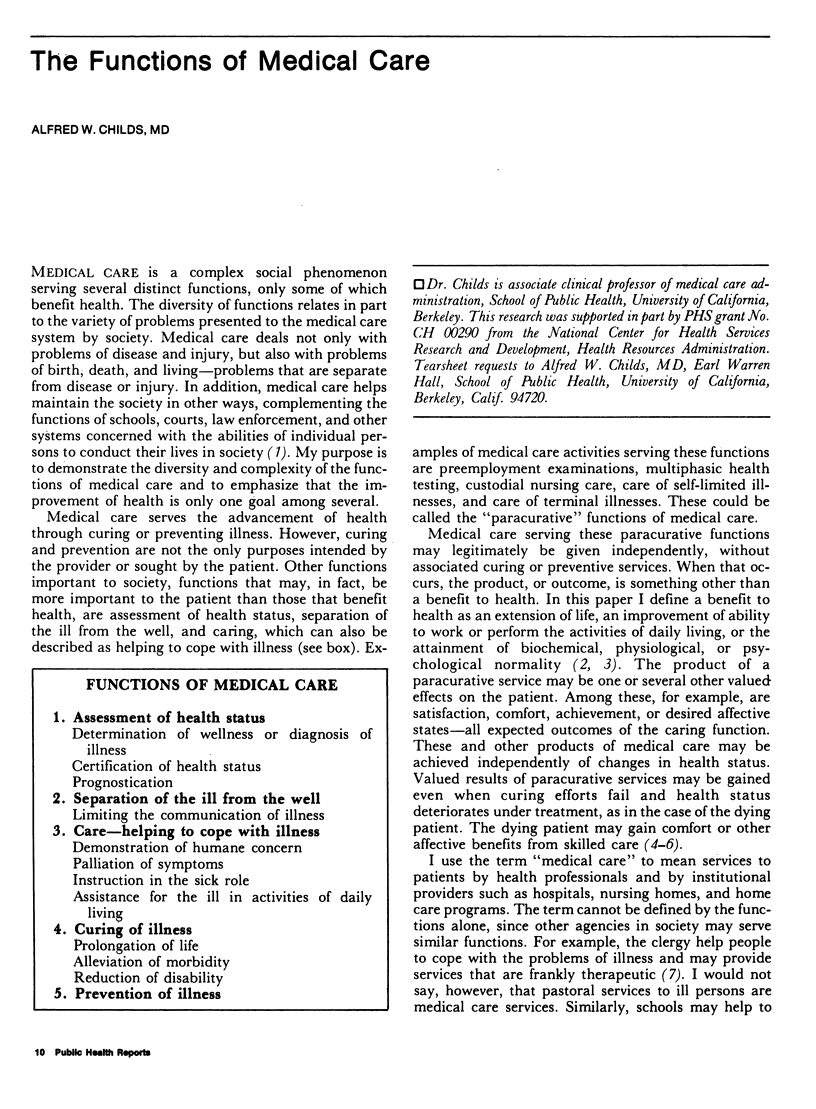
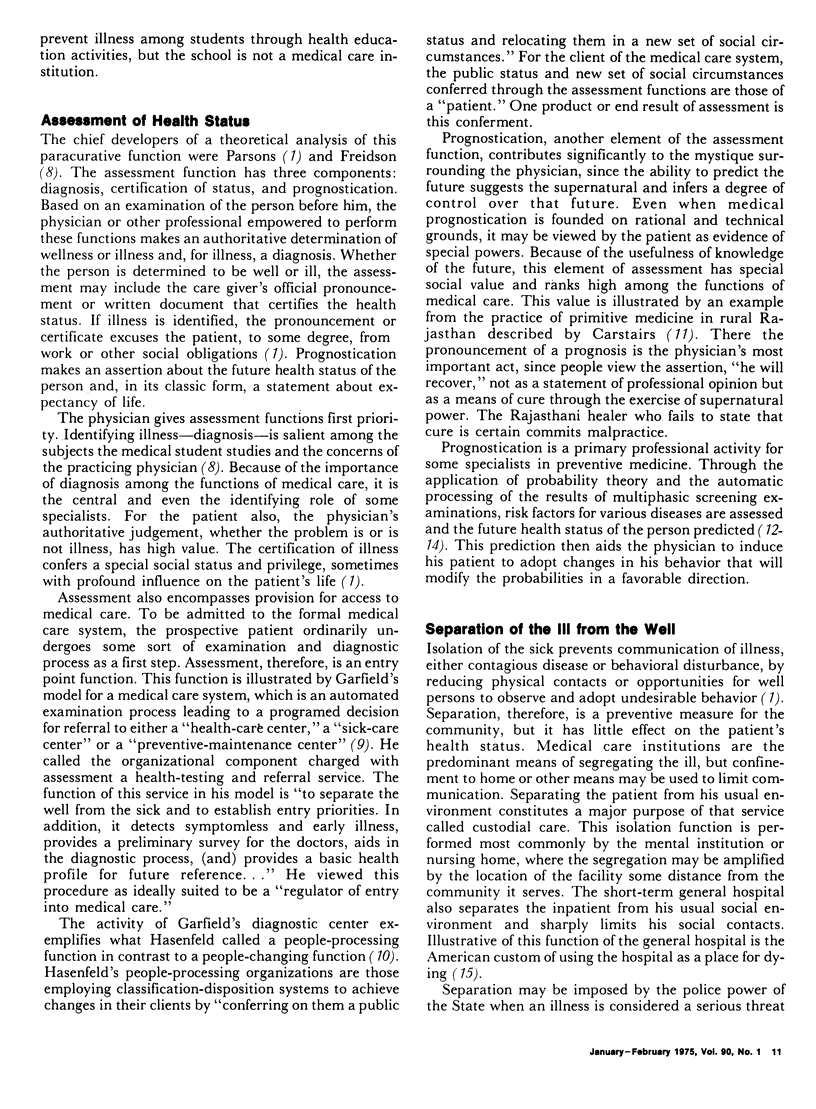
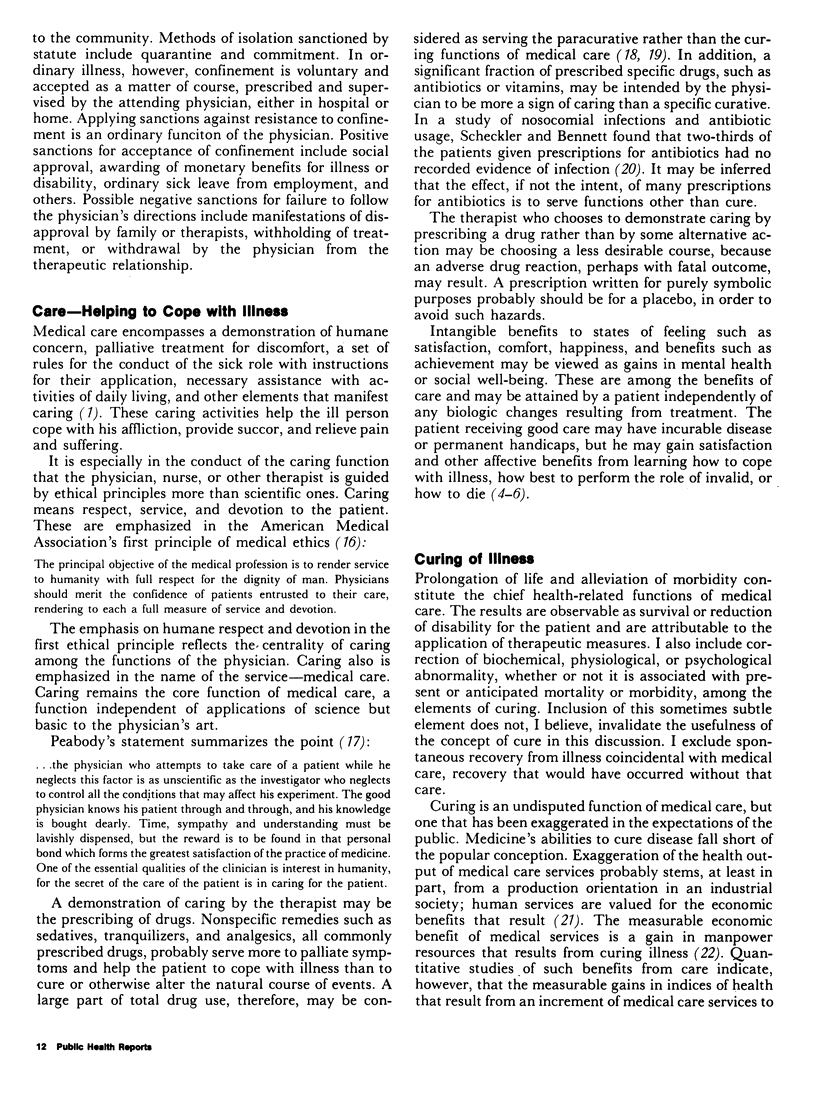
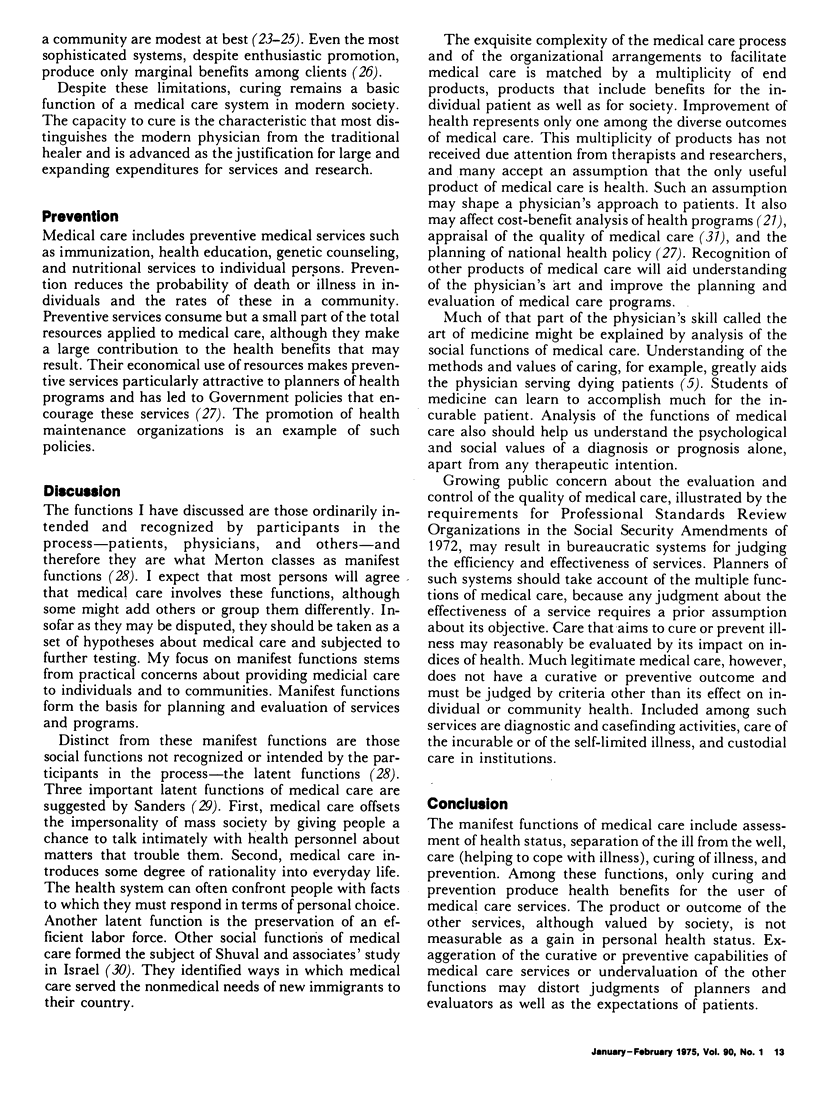
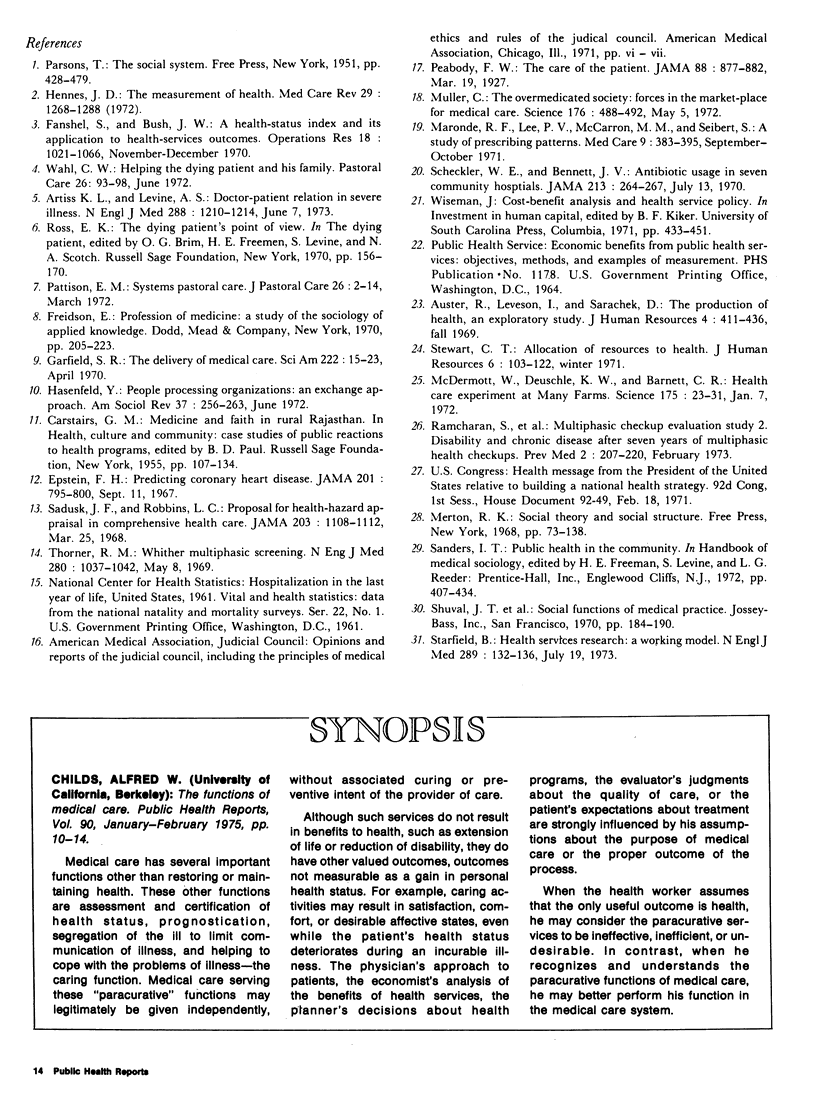
Selected References
These references are in PubMed. This may not be the complete list of references from this article.
- Artiss K. L., Levine A. S. Doctor-patient relation in severe illness. A seminar for oncology fellows. N Engl J Med. 1973 Jun 7;288(23):1210–1214. doi: 10.1056/NEJM197306072882305. [DOI] [PubMed] [Google Scholar]
- Epstein F. H. Predicting coronary heart disease. JAMA. 1967 Sep 11;201(11):795–800. [PubMed] [Google Scholar]
- Garfield S. R. The delivery of medical care. Sci Am. 1970 Apr;222(4):15–23. doi: 10.1038/scientificamerican0470-15. [DOI] [PubMed] [Google Scholar]
- Maronde R. F., Lee P. V., McCarron M. M., Seibert S. A study of prescribing patterns. Med Care. 1971 Sep-Oct;9(5):383–395. doi: 10.1097/00005650-197109000-00002. [DOI] [PubMed] [Google Scholar]
- McDermott W., Deuschle K. W., Barnett C. R. Health care experiment at Many Farms. Science. 1972 Jan 7;175(4017):23–31. doi: 10.1126/science.175.4017.23. [DOI] [PubMed] [Google Scholar]
- Muller C. The overmedicated society: forces in the marketplace for medical care. Science. 1972 May 5;176(4034):488–492. doi: 10.1126/science.176.4034.488. [DOI] [PubMed] [Google Scholar]
- Ramcharan S., Cutler J. L., Feldman R., Siegelaub A. B., Campbell B., Friedman G. D., Dales L. G., Collen M. F. Multiphasic checkup evaluation study. 2. Disabilty and chronic disease after seven years of multiphasic health checkups. Prev Med. 1973 Jun;2(2):207–220. doi: 10.1016/0091-7435(73)90065-0. [DOI] [PubMed] [Google Scholar]
- Sadusk J. F., Jr, Robbins L. C. Proposal for health-hazard appraisal in comprehensive health care. JAMA. 1968 Mar 25;203(13):1108–1112. [PubMed] [Google Scholar]
- Scheckler W. E., Bennett J. V. Antibiotic usage in seven community hospitals. JAMA. 1970 Jul 13;213(2):264–267. [PubMed] [Google Scholar]
- Starfield B. Health services research: a working model. N Engl J Med. 1973 Jul 19;289(3):132–136. doi: 10.1056/NEJM197307192890305. [DOI] [PubMed] [Google Scholar]
- Thorner R. M. Whither multiphasic screening? N Engl J Med. 1969 May 8;280(19):1037–1042. doi: 10.1056/NEJM196905082801904. [DOI] [PubMed] [Google Scholar]


